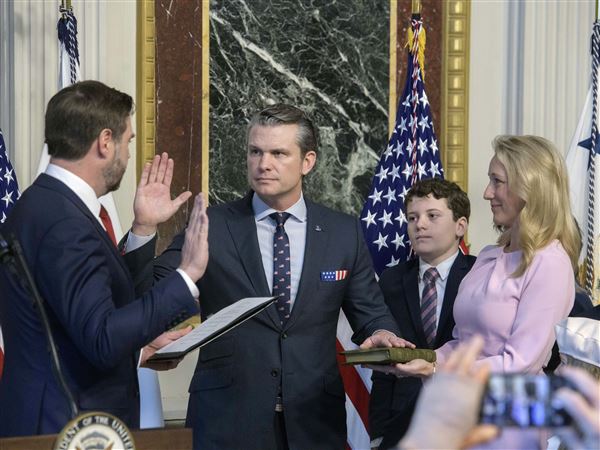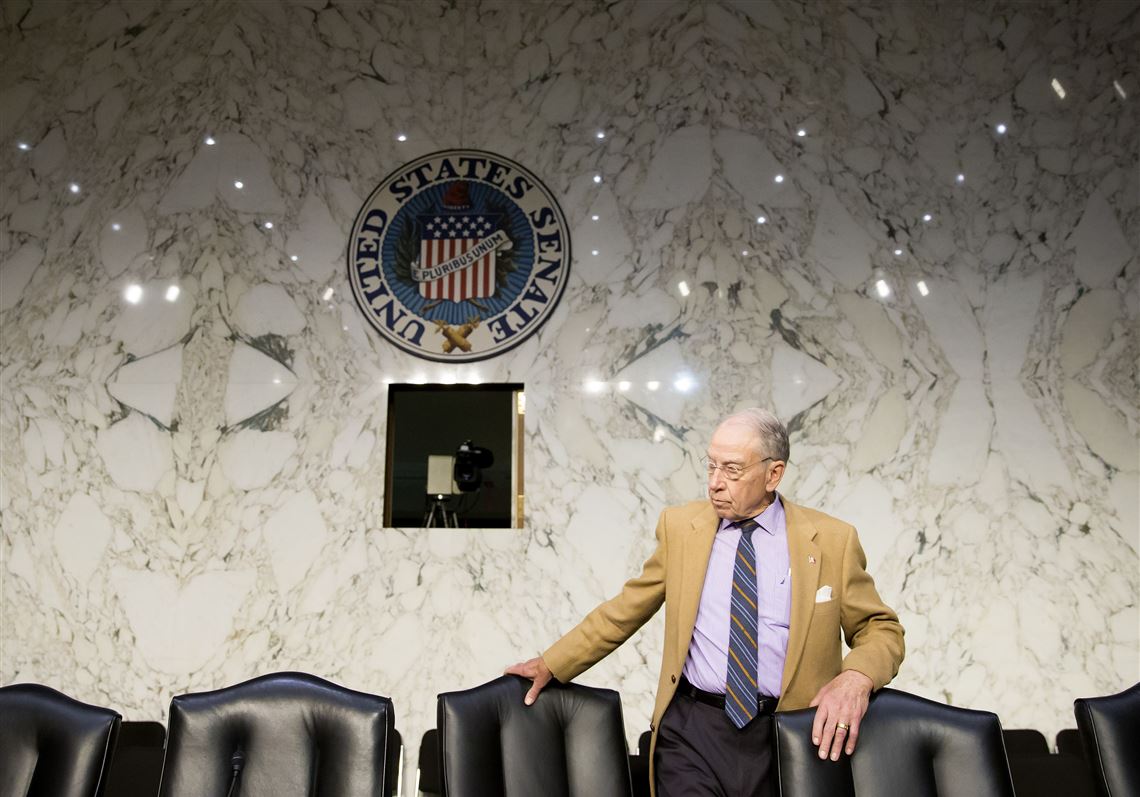WASHINGTON - Senate Judiciary Committee Chairman Charles Grassley has scheduled a hearing for two of President Donald Trump’s circuit court nominees over lawmakers’ objections, making good on the GOP’s promise to prevent individual senators from blocking the president’s court picks.
Grassley’s, R-Iowa, announcement Thursday that David Stras and Kyle Duncan would face the committee Nov. 29 comes on the same day that Sen. Al Franken, D-Minn. - the main senator refusing to give his approval for Stras’s nomination - was accused of sexual assault, for which he now faces a formal ethics investigation.
Traditionally, senators representing states under the jurisdiction of a federal judgeship are asked to return a “blue slip” for nominees before the confirmation process commences. If an affected senator doesn’t return a blue slip - named so because it is actually a blue slip of paper - the nominee doesn’t receive a hearing.
Grassley argues that most Senate Judiciary Committee chairmen have not obeyed the blue slip process that strictly. And the GOP’s position is that making circuit court nominees who preside over several states dependent on every last senator returning a blue slip is irrational because it gives Democrats an effective political veto.
“We’re going to honor the blue slip process, but there are always exceptions,” Grassley said on the Senate floor Thursday. “I’m not going to allow senators to prevent a committee hearing for political or ideological reasons.”
Grassley argued that Franken’s reasons for attempting to block Stras were political. Franken has said that he withheld the blue slip because the White House did not sufficiently consult him about the nomination. Stras has been nominated to serve on the U.S. Court of Appeals for the 8th Circuit.
Democrats have also not returned blue slips for Ryan Bounds, who Trump nominated to sit on the 9th Circuit, and Michael Brennan, nominated for the 7th Circuit.
But the holdout senator in Duncan’s case is a Republican.
Sen. John Neely Kennedy, R-La., has not returned the blue slip for Duncan, nominated to the 5th Circuit. He has offered no details as to why.
But Grassley drew a distinction between Kennedy withholding a blue slip and Franken doing so, noting that Kennedy had not objected to a hearing for Duncan.
“This is the correct distinction a senator should make when deciding whether to return a blue slip,” Grassley said. “The blue slip is not meant to signify the senator’s ultimate support or opposition to the nominee.”
In this political environment, however, it is sometimes a senator’s only chance to mount a viable objection. Votes on judicial nominees are no longer subject to a procedural filibuster, which would require supporters to come up with 60 votes to confirm a nominee. Senate Democrats changed the rules when they held the Senate majority in 2013; Grassley surmised Thursday that Democrats probably “regret” that decision.
First Published: November 17, 2017, 2:18 a.m.















